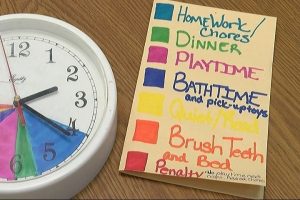Terrible Two’s
Your sweet little baby is growing fast, she’s becoming more independent and she’s so smart. You are very proud of her and secretly love comparing her to other kids. You have heard people talking about the terrible two’s for years but you aren’t worried. You know that you and your wife are great parents who treat your child with love and acceptance. Fast forward a few short months. You are now determining whether it’s possible to plan a lunch, play date or even a trip to the grocery store based on your little sweetheart’s mood swings. Sound familiar? The terrible two’s are real. The epidemic doesn’t discriminate. It crosses all zip codes, social classes and doesn’t care if your little one goes to daycare or stays home. One day she’s an angel and you are lulled into thinking this stage has passed only to double down on her unreasonable and illogical expectations the next. I am here to tell you that you are not alone and offer some tips that may help get through this stage with some hair left on your head.
Have reasonable expectations
This is the most difficult task. Your little one is so smart that it’s easy to forget how young he really is. He was just a baby a few months ago. Because he can do many things it is easy to forget that he is not old enough to have the emotional maturity to handle things like disappointment or have patience. Try to understand what he is really capable of and don’t expect more.
Be patient
Try to remember that this is a phase and it will pass. Everyone says terrible two’s. Some even say terrible three’s. But I have never heard of terrible four’s. This is temporary and your child is not the exception. However, remember that as a father you will have to practice patience for the foreseeable future.
Use positive reinforcement when possible
There are times when you have to punish your toddler’s behavior, especially when it is dangerous. However, toddlers typically respond much better to reward than punishment. They respond particularly well to praise, which has the added bonus of being easy and free. And remember if they can’t understand or control the behavior then punishment is unlikely to work anyway.
Schedule, schedule, schedule
Life happens and we tend to fly by the seat of our pants but young children respond much better when they know what to expect. Also, nothing increases mood swings like hunger and sleepiness. By sticking to a schedule you will keep your children fed, rested and feeling secure which may also reduce acting out.
Explain your reasoning to them
Don’t misunderstand this to mean that you should get them to buy in to your decision-making or negotiate with them. However, by explaining your reasoning to them they are slowly learning that your decisions are based in reason and not simple authority. This has two advantages. The first is they learn to trust and the second is they learn to think and reason for themselves.
Calm them down
When they are particularly out of control you can slow down, get very quiet, turn off all noise, shut off the lights and read a book or just sit and cuddle together. Sometimes this can serve as a reset.
Let them be wild occasionally
Sometimes they just need to burn off steam. Let them run and scream and jump-do it with them. Just make sure you are determining the time and place for that and let them know this is special time and that behavior is not always acceptable.
Remember that for them this is an exciting period of exploration and learning. They are pushing boundaries not because they want to test your patience, but simply to try to figure out how the world works. You will look back on this time fondly once all the chaos is over so try to make some great days with fun as well as discipline.



